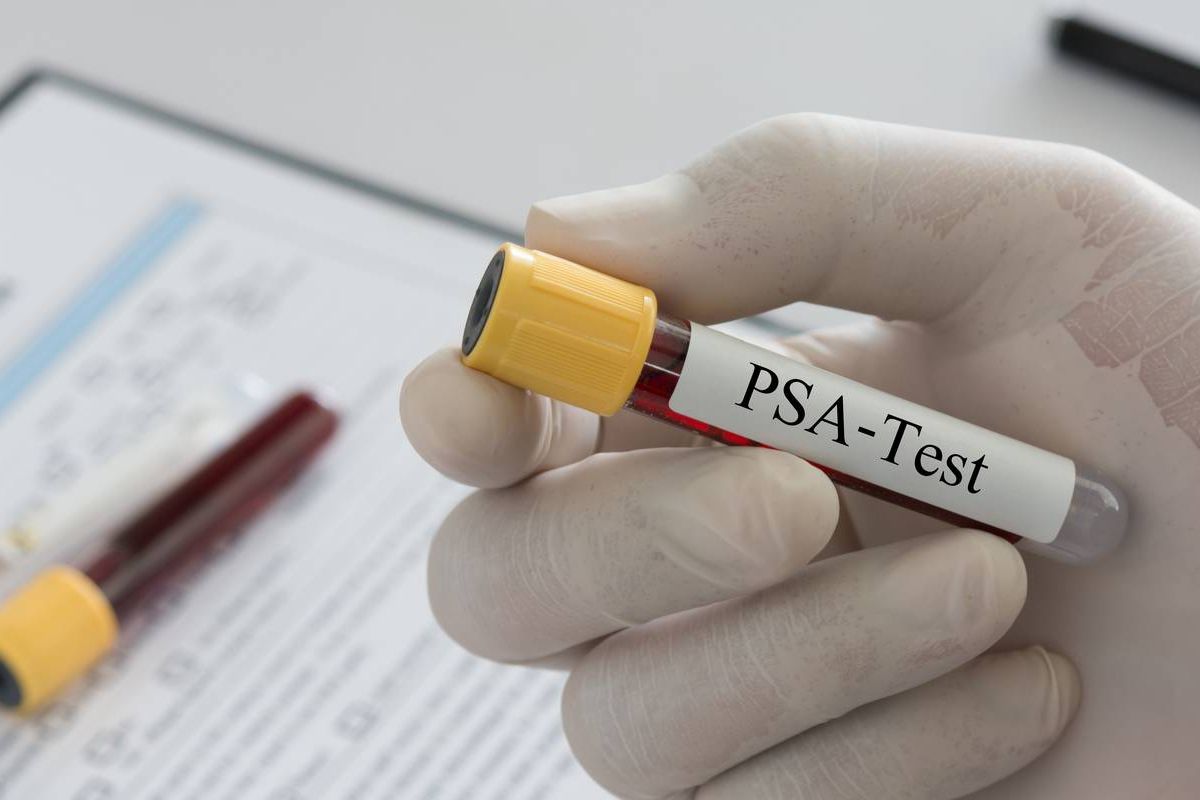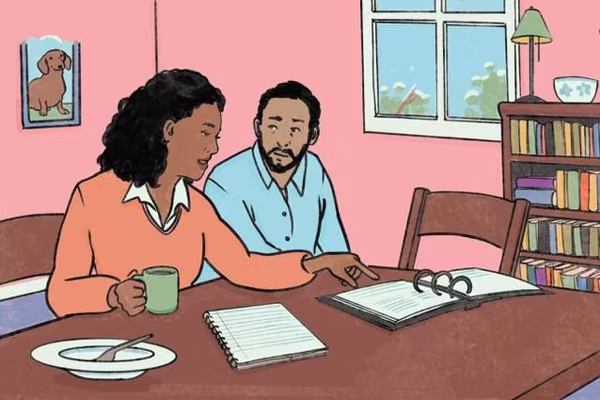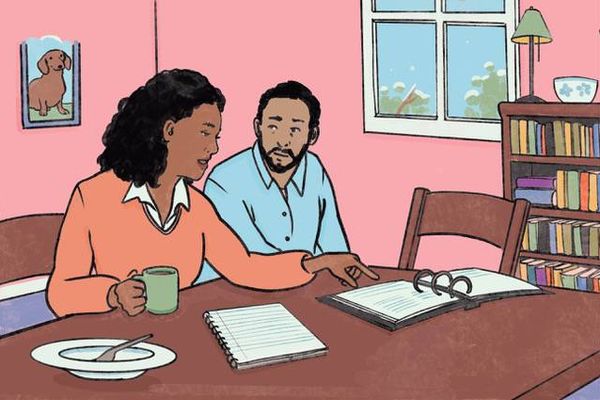In 2022, Lisa Barron’s husband, Jeff, started having urinary symptoms that doctors attributed to a urinary tract infection (UTI). Since Jeff had lost friends and family to prostate cancer, he pushed for a prostate-specific antigen (PSA) test. The results pointed to a high likelihood of prostate cancer, sparking a winding journey for the Barrons.
“There were months of sleepless nights, endless waiting for test results and the quiet fear of ‘what if,’” Lisa said. It was later discovered that the cancer was aggressive and had spread to Jeff’s lymph nodes.
Today, Jeff’s cancer is virtually undetectable. However, the journey doesn’t stop there. “We know ‘undetectable’ doesn’t mean gone forever,” Lisa said. “Every follow-up appointment carries both hope and dread.”
Even if you don’t have a prostate yourself, you probably know or love someone who does. Here’s what you should know about prostate cancer.
Prostate anatomy basics
The prostate is a walnut-sized gland found in males. It’s located in the pelvis — below the bladder, in front of the rectum. The prostate is part of the male reproductive system. It adds fluid to semen and moves it through the urethra during ejaculation.
Risk factors
Prostate cancer is very common. “Roughly 1 in 8 men will be diagnosed with prostate cancer in their lifetime,” said John G. Christensen Jr, M.D., a board-certified urologist at Northwestern Medicine.
Some of the risk factors for prostate cancer include:
- Older age
- African American race and African ethnicity
- Family history of prostate cancer
- Certain gene mutations or changes
Although there isn’t a proven way to prevent prostate cancer, certain lifestyle changes may help reduce the risk of prostate cancer:
- Cutting down on dairy and other high-fat foods
- Eating plenty of fruits and vegetables
- Avoiding smoking
- Exercising regularly
- Maintaining a healthy body weight
Prostate cancer symptoms
Prostate cancer doesn’t always have symptoms. “Early prostate cancer is often asymptomatic, so the first warning sign is usually elevated PSA,” Christensen said.
When early-stage prostate cancer does cause symptoms, they typically include:
- Blood in the urine or semen
- Frequent urination
- Difficulty starting urination
Though prostate cancer is typically caught early, it can spread and cause symptoms of advanced prostate cancer, including:
- Leaking urine
- Back or bone pain
- Erectile dysfunction
- Fatigue
- Unintentional weight loss
- Weakness in the arms or legs
Prostate cancer can also cause the following complications:
- Pain or burning while urinating
- Weak urine flow
- Urinary incontinence
- Fecal incontinence
- Hip or chest pain
Prostate cancer treatments
Prostate cancer is usually treatable, especially when caught early. “Prognosis for early-stage prostate cancer is excellent, and most men have good cancer control with an essentially normal lifespan,” Christensen said.
Treatment options typically include:
- Observation
- Radiation
- Surgery
- Hormone therapy
- Medication
Prostate cancer screening and diagnosis
Most prostate cancers are caught early, which is partly thanks to screening tests. “The most important screening test is PSA blood testing,” Christensen said. PSA tests are usually recommended for men over 50.
Prostate exams, or digital rectal exams, can also help healthcare providers (HCPs) catch prostate cancer. They may find that the prostate is enlarged or has other abnormalities that require further evaluation. HCPs may also order imaging or perform a biopsy to diagnose prostate cancer.
Jeff and Lisa’s story is one of resilience and a reminder of the importance of early detection. Lisa also has a message for spouses and caregivers: “A diagnosis doesn’t just happen to one person — it impacts partners, children and loved ones.”
This educational resource was created with support from Bayer and Merck.
- Caregivers of Prostate Cancer - HealthyWomen ›
- Caregiving for a Partner with Prostate Cancer and Lymphedema - HealthyWomen ›
- Cuidadores de pacientes con cáncer de próstata - HealthyWomen ›
- Cuidar a una pareja con cáncer de próstata y linfedema - HealthyWomen ›
- Polly’s Partner, Pete, Has Prostate Cancer - HealthyWomen ›
- Brindar asistencia a un ser querido con cáncer de próstata - HealthyWomen ›





